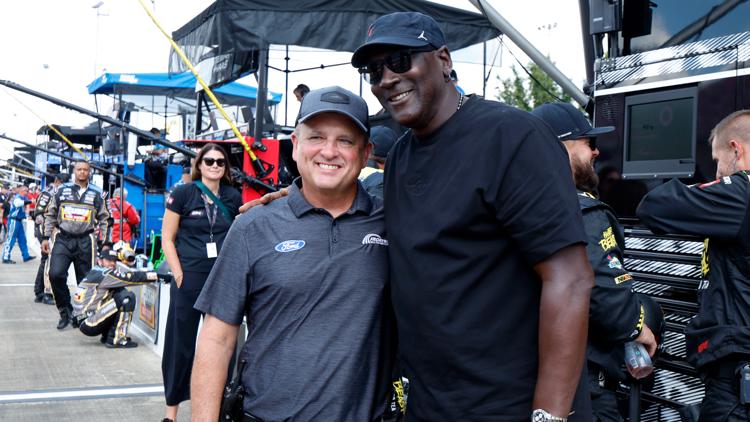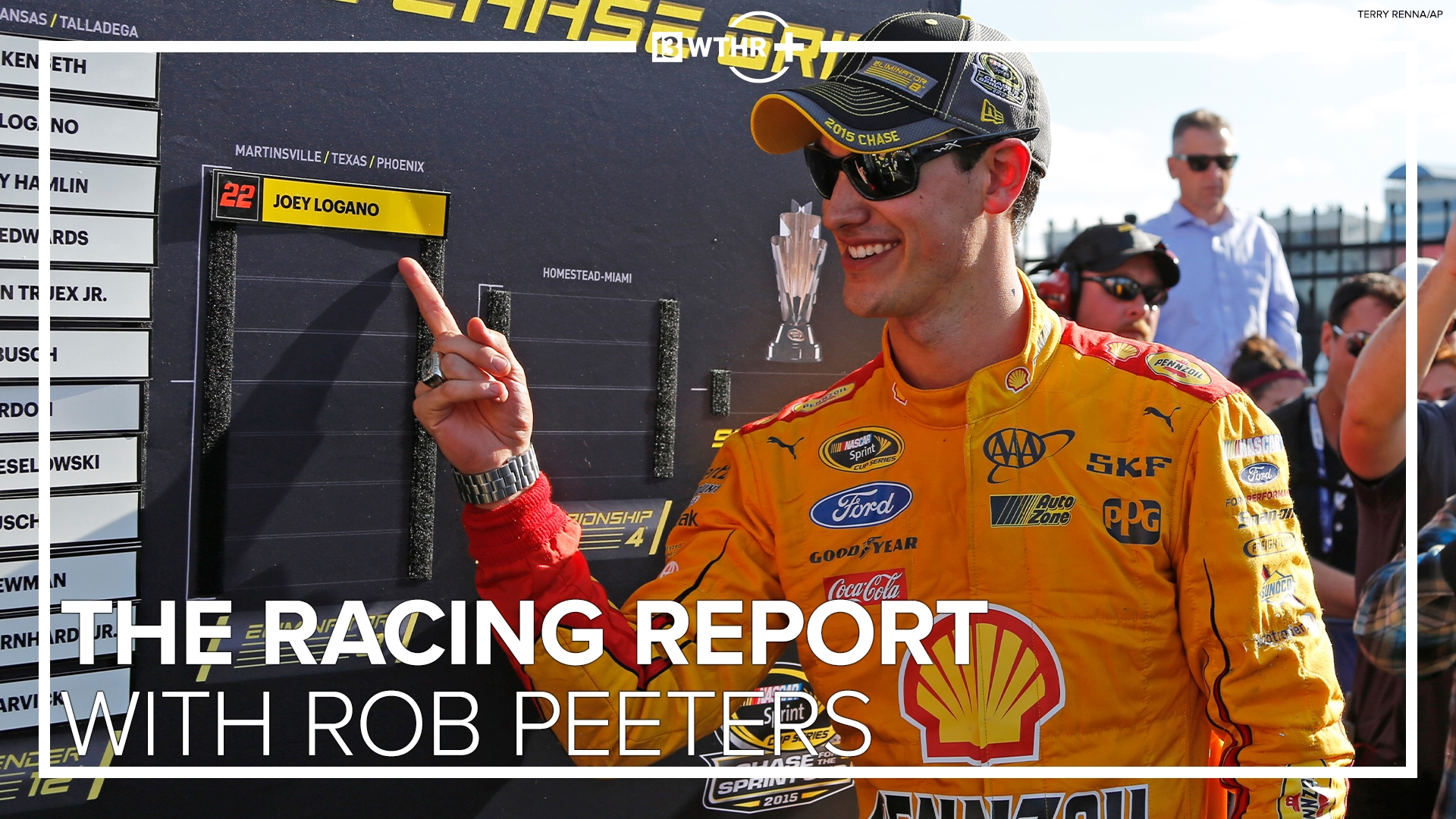CHARLOTTE, N.C. — Front Row Motorsports, one of two teams suing NASCAR in federal court, accused the stock car series Thursday of rejecting the planned purchase of a valuable charter unless the lawsuit was dropped.
Front Row made the claim in a court filing and said it involved its proposed purchase of the charter from Stewart-Haas Racing. Front Row said the series would only approve it if Front Row and 23XI Racing dropped their court case.
“Specifically, NASCAR informed us that it would not approve the (charter) transfer unless we agreed to drop our current antitrust lawsuit against them,” Jerry Freeze, general manager of Front Row, said in an affidavit filed in the U.S. District Court of Western North Carolina.
The two teams in September refused to sign NASCAR's “take-it-or-leave-it” final offer on a new revenue sharing agreement. All other 13 teams signed the deal.
Front Row and 23XI balked and are now in court. 23XI co-owner Michael Jordan has said he took the fight to court on behalf of all teams competing in the top motorsports series in the United States. NASCAR has argued that the two teams simply do not like the terms of the final charter agreement and asked for the lawsuit be dismissed.
Earlier this week, the suit was transferred to a different judge than the one who heard the first round of arguments and ruled against the two teams in their request for a temporary injunction to be recognized in 2025 as chartered teams as the case proceeds.
The latest filing is heavily redacted as it lays out alleged retaliatory actions by NASCAR the teams say have caused irreparable harm.
Both Front Row and 23XI want to expand from two full-time cars to three, and have agreements with SHR to purchase one charter each as SHR goes from four cars to one for 2025. The teams can still compete next season but would have to do so as “open” teams that don't have the same protections or financial gains that come from holding a charter.
Freeze claimed in the affidavit that Front Row signed a purchase agreement with SHR in April and NASCAR President Steve Phelps told Freeze in September the deal had been approved.
But when Front Row submitted the paperwork last month, NASCAR began asking for additional information. A Dec. 4 request from NASCAR was “primarily related to our ongoing lawsuit with NASCAR,” Freeze said.
“NASCAR informed us on December 5, 2024, that it objected to the transfer and would not approve it, in contrast to the previous oral approval for the transfer confirmed by Phelps before we filed the lawsuit,” Freeze said. “NASCAR made it clear that the reason it was now changing course and objecting to the transfer is because NASCAR is insisting that we drop the lawsuit and antitrust claims against it as a condition of being approved.”
A second affidavit from Steve Lauletta, the president of 23XI Racing, claims NASCAR accused 23XI and Front Row of manufacturing “new circumstances” in a renewed motion for an injunction and of a “coordinated effort behind the scenes.”
“This is completely false,” Lauletta said.
Front Row is owned by businessman Bob Jenkins, while 23XI is owned by retired NBA Hall of Famer Jordan, three-time Daytona 500 winner Denny Hamlin and longtime Jordan adviser Curtis Polk.
NASCAR had been operating with 36 chartered teams and four open spots since the charter agreement began in 2016. NASCAR now says it will move forward in 2025 with 32 chartered teams and eight open spots, with offers on charters for Front Row and 23XI rescinded and the SHR charters in limbo.
The teams contend they must be chartered under some of their contractual agreements with current sponsors and drivers, and competing next year as open teams will cause significant losses.
“23XI exists to compete at the highest level of stock car racing, striving to become the best team it can be. But that ambition can only be pursued within NASCAR, which has monopolized the market as the sole top-tier circuit for stock car racing,” Lauletta said. "Our efforts to expand – purchasing more cars and increasing our presence on the track – are integral to achieving this goal.
“It is not hypocritical to operate within the only system available while striving for excellence and contending for championships,” he continued. “It is a necessity because NASCAR’s monopoly leaves 23XI no alternative circuit, no different terms, and no other viable avenue to compete at this level.”



